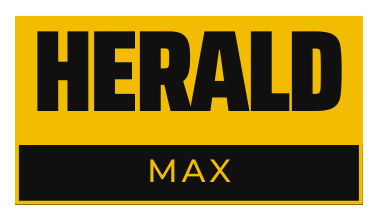
In today’s fast-paced world, where stress and sedentary lifestyles often take center stage, achieving optimal well-being has become more important than ever. Building muscle is a crucial component of overall health and can contribute significantly to your well-being. In this comprehensive guide, we’ll explore the key elements of muscle-building, including workouts, nutrition, resistance training, and much more, all under the tag of ‘well health how to build muscle tag’.
The Foundation: Muscle-Building Workouts
The journey to a healthier, more muscular you starts with exercise. Muscle-building workouts are the cornerstone of your fitness regimen. These workouts stimulate muscle growth, improve strength, and enhance overall well-being.
Resistance training, often performed with weights, is an effective way to target specific muscle groups. Incorporate compound exercises like squats, deadlifts, bench presses, and pull-ups for maximum impact. Remember, consistency is key, so aim for at least 3-4 workouts a week.
Fueling Your Progress: The Importance of Nutrition
Muscles need proper nutrition to grow and thrive. Protein, an essential nutrient, plays a central role in muscle development. Aim to consume lean protein sources like chicken, fish, lean beef, and plant-based options like tofu and legumes.
Balanced nutrition, including healthy fats and carbohydrates, supports muscle growth and overall well-being. Don’t forget to include monounsaturated and polyunsaturated fats from sources like avocados, nuts, and seeds, as well as complex carbohydrates from whole grains and vegetables.
The Role of Progressive Overload
Progressive overload is a fundamental concept in muscle-building. It involves gradually increasing the resistance or intensity of your workouts to challenge your muscles continuously. This approach encourages muscle growth and prevents plateaus.
To implement progressive overload, increase the weight, add repetitions, or modify exercise variations over time. This ensures your muscles are always adapting to new challenges, promoting both muscle mass and well-being.
Supplements for Enhanced Muscle Building
While a balanced diet should be your primary source of nutrition, supplements can complement your efforts. Protein supplements like whey or plant-based options can help meet your protein intake goals. Creatine, branched-chain amino acids (BCAAs), and other supplements may also offer benefits.
However, it’s essential to consult with a healthcare professional before incorporating supplements into your routine. Safety and individual needs should always be a priority.
Recovery and Well-Being: The Importance of Sleep
In the pursuit of muscle-building and well health, don’t underestimate the role of rest and recovery. Adequate sleep is when your body repairs and grows muscles. Aim for 7-9 hours of quality sleep each night to support your efforts.
During sleep, hormones responsible for muscle growth are released, and the body rejuvenates. Insufficient sleep can lead to stress, hinder muscle development, and increase the risk of injury.
Mindfulness and Stress Management
Stress can be a significant roadblock to muscle-building and overall well-being. Chronic stress releases cortisol, a hormone that can break down muscle tissue and inhibit growth. Practicing mindfulness techniques such as meditation, deep breathing, and yoga can help manage stress and enhance your results.
Reducing stress and maintaining a positive mindset is vital to your muscle-building journey and overall well health.
The Power of Mind-Muscle Connection
Another often-overlooked aspect of muscle-building is the mind-muscle connection. This concept emphasizes focusing on the muscles you’re working during each exercise, enhancing the effectiveness of your workout.
Mindfulness during workouts not only improves muscle engagement but also reduces the risk of injury. It’s all about quality over quantity, ensuring that each repetition counts.
Repetitions and Weight Management
The number of repetitions you perform during resistance training plays a crucial role in your muscle-building journey. Generally, lower repetitions with heavier weights emphasize strength gains, while higher repetitions with lighter weights focus on endurance.
A balanced approach can help you achieve muscle growth and overall well-being. A mix of rep ranges in your workouts allows you to target different aspects of muscle development.
Assessing and Minimizing Risk
Understanding your body and its limits is vital for well health. Assess your risk factors, and ensure you’re not pushing yourself too hard or using improper form during workouts. Always prioritize safety.
If you’re new to resistance training, consider seeking guidance from a qualified fitness trainer or physical therapist. They can help you establish a safe and effective workout plan tailored to your needs and goals.
Breaking Through Plateaus
As you embark on your muscle-building journey, you may encounter plateaus where your progress stagnates. Don’t be discouraged; plateaus are a natural part of the process.
To overcome plateaus, consider adjusting your workout routine, changing exercises, or incorporating new training techniques. Your body responds positively to variety, so keep things fresh to keep growing.
In conclusion, ‘well health how to build muscle tag’ encompasses a holistic approach to building muscle and promoting overall well-being. It involves muscle-building workouts, balanced nutrition, progressive overload, supplements, adequate sleep, stress management, and mindfulness. By incorporating these elements into your fitness journey, you’ll not only achieve your desired muscle mass but also elevate your well-being to new heights. Building muscle is not just about aesthetics; it’s about a healthier, stronger you.





